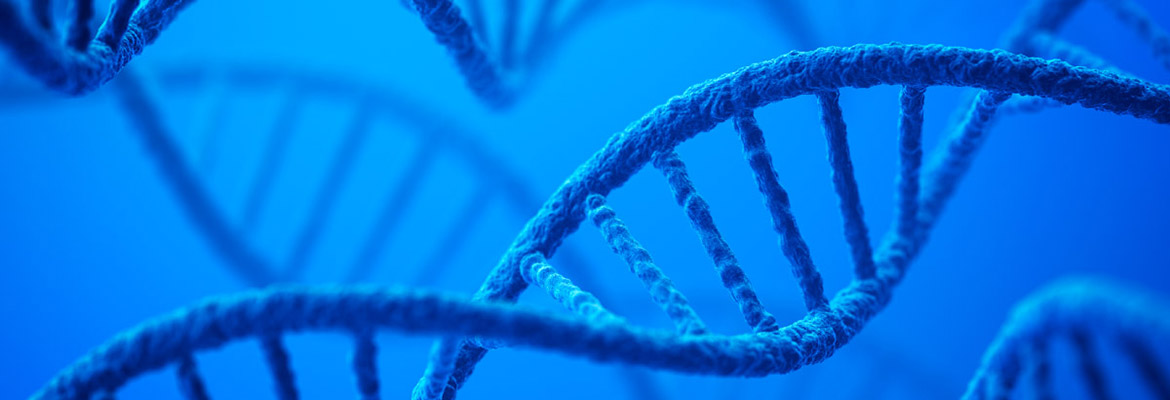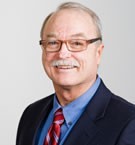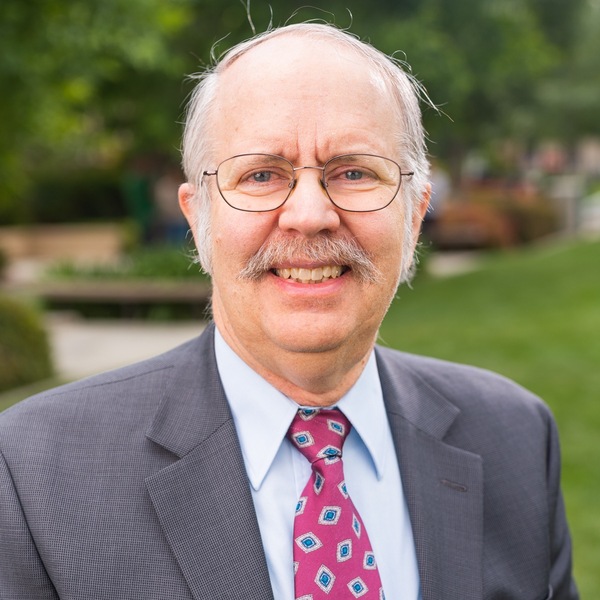Master of Arts – Science and Religion
Master of Arts – Science and Religion


Program at a Glance
Format
Fully Online
Note: This program may be completed fully online with the opportunity to take a one-week advanced apologetics course — on Biola University's campus — during the summer.
Total Credits
39
Cost per Credit
$730
Standard Completion Time
2 years or more
Accreditation
WSCUC / ATS
Overview
Christians who train in the sciences often feel pressured to compartmentalize their faith from their profession, or do not feel equipped to address or change the cultural stereotypes regarding science and faith. The Master of Arts with a focus in Science and Religion is designed to provide scientifically literate individuals with the essential background in theology, history, and philosophy that is necessary to integrate modern science with Christianity.
- Build confidence to defend the Christian faith. Defend the Christian faith within the field of science by learning through advanced seminars focused on current theological issues within specific scientific disciplines.
- The only science and religion master's program of its kind in the United States. Receive cutting-edge training within this academically rigorous specialized degree.
- Learn to integrate Christianity and science. Gain the insight and knowledge you need to grapple with challenging questions about intelligent design, life outside this universe and more.
- Flexible online learning. Finish your degree with online learning opportunities, and take classes that fit your busy schedule.
- Distinguished and expert faculty. Learn from scholars such as William Lane Craig, John A. Bloom, Garrett J. DeWeese, Paul Nelson and others.
Learning Format
Students from across the world can study online under the best and the brightest in apologetics, science, theology and philosophy. Join this robust and engaging online academic community – tackling the most challenging and consequential issues of our day.
Students will also have an opportunity to take a one-week advanced apologetics course – on campus – during the summer.
Courses
What will I study as a Master of Arts – Science and Religion student?
Students from across the world can study online under the best and the brightest in apologetics, science, theology and philosophy. Join this robust and engaging online academic community — tackling the most challenging and consequential issues of our day.
Some of your courses include:
Modern Physics, Cosmology, and Design (CSSR 631)
Authority of Scriptural Traditions (CSSR 516)
Metaphysics and Epistemology (CSSR 540)
Admissions & Deadlines
As a Christian institution, Biola seeks to admit applicants whose backgrounds clearly demonstrate scholarly aptitude, a commitment to the historic Christian faith, personal character and integrity, and a positive service-oriented motivation toward their field of study. Biola does not discriminate on the basis of the applicant's race, color, sex, socio-economic status, disability, or national or ethnic origin.
Education and GPA Requirements
- You must have a bachelor’s degree from an accredited institution by the time you plan to start coursework at Biola, with a minimum grade point average of 3.0 (on a 4.0 scale).
- It is not a requirement that this bachelor’s degree be in Bible, theology, or a related discipline, but a background in a field of natural science is highly recommended.
- Note: If you do not meet the degree or GPA requirements above, you may still be considered for admission. Please contact the Office of Graduate Admissions office at graduate.admissions@biola.edu. If you are an international student, contact grad.international@biola.edu.
English Proficiency Requirements
- If English is not your first language, you are required to display your English proficiency before admittance into a Biola University graduate program. See “English Proficiency” in the application steps section below.
Application Deadlines
- Fall Semester
- General: July 1
- International Students
- On Campus: June 1
- Online/Hybrid: July 1
- Spring Semester
- General: November 1
- International Students: October 1
Visit Biola
Explore our sunny Southern California campus in person or virtually. Learn more about your program of interest and the admissions process by scheduling an appointment with an admissions counselor.
Meet Your Admissions Counselor
If you have more questions about the program, admissions process or Biola in general, schedule a phone call or send an email to your admissions counselor.
Graduate Admissions Counselor

Email: todd.johnson
Text or Call: (562) 903-6030
Book a Phone or Virtual Appointment
International Graduate Admissions Counselor
The Office of International Admissions serves students who are not citizens or permanent residents of the United States.
Email: grad.international@biola.edu
Book a Phone or Virtual Appointment
Application Steps
Complete and submit the online application
Submit a non-refundable $65 application fee
Submit supplemental application materials through your online application portal:
- Submit all official transcripts from previous academic institutions.
- Request official transcripts from all colleges and universities attended.
- If enrolled at the time the application is filed, be sure to request transcripts of work finished to date and final transcripts upon completion of your course of study.
- Transcripts will be considered official only when a) mailed directly from the institution to Biola, b) sent electronically through an approved vendor or c) physically delivered in an untampered envelope sealed by the institution. Final approval for admission is contingent on receiving an official transcript.
- Mail transcripts to:
Biola University Office of Graduate Admissions
13800 Biola Avenue, La Mirada, CA 90639
- Mail transcripts to:
- Note for International Students: All international transcripts need U.S. grade equivalencies noted (i.e. GPA on a 4.0 scale). If your transcripts do not show U.S. grade equivalencies, you must have them evaluated by a credential evaluation agency like SpanTran (Biola Discount), World Education Services (WES) or Foundation for International Services (FIS). Be sure to choose "course by course report" and have SpanTran/WES/FIS send them directly to Biola University via online portal or post (13800 Biola Ave, La Mirada, CA 90639) in order to be considered official.
- Pastoral reference
- Character reference
- Note: Additional instructions can be found in the online application.
- Christian testimony
- One information profile and writing sample. Please answer the following questions:
- Why do you desire to enroll in the M.A. with a concentration in Science & Religion program and what do you hope to gain from your studies? How does this relate to your personal and/or vocational objectives? (one page max)
- List two or three books you have recently read in the area of science and religion, and give a one paragraph assessment of each. (one page max)
- Please list any background that is relevant to the M.A. with a concentration in Science & Religion program: Past/current employment, ministry experience, education or other experience. (one page max)
- Note: The essay prompts can be found in the online application.
- Evidence of English proficiency is required for all students to support student success. Proficiency must be shown through one of the methods described below:
- Minimum test score on a qualifying standardized test
- TOEFL: minimum score of 100 iBT
- IELTS: minimum score of 7.5
- Duolingo: minimum score of 125
- A degree (bachelor’s, master’s or doctoral) issued by an institution where English is the medium of instruction.
- Official written communication from the institution (Registrar, Controller of Examinations Office, or Undergraduate College)
- Official degree statements or transcripts may be accepted given English is stated as the medium of instruction
- Official catalog verification
- Note: For universities from non-Anglophone countries, further language assessment may be required.
- Minimum test score on a qualifying standardized test
- “Change of Program” Form: Talbot General Change of Program Request
- Special Student Application
- Track your application status at any time. You do not have to complete the application in one sitting. You can complete a portion and finish at a later time. Your information will be saved. When you apply, to guarantee confidentiality, you will be asked to create a user name and a password, and will receive a personalized identification number. Track your application status by logging in to the online application.
- Official documents presented for admission or evaluation become part of the student’s academic file and normally cannot be returned or copied for distribution.
Official Transcripts
Two Reference Letters
Two Essays
English Proficiency (required for non-native English speakers)
Additional Forms
Things to Note
Tuition and Financial Aid
Biola is committed to help make your studies affordable — each school offers different scholarship, grant and loan opportunities to help finance your education.
| Cost Per Credit (2025‑26) | $730 |
|---|---|
| Full-time Tuition Per Term (Estimated) Based on 9 credit courseload | $6,570 |
| Part-time Tuition Per Term (Estimated) Based on 3 credit courseload | $2,190 |
| Total Program Tuition (Estimated) Based on total program credits and 2025‑26 cost per credit | $28,470 |
Faculty

J P Moreland
Distinguished Professor of Philosophy
- Ph.D., University of Southern California
- M.A., University of California, Riverside
- Th.M., Dallas Theological Seminary
- B.S., University of Missouri

John Bloom
Professor Emeritus of Physics
- Ph.D., Annenberg Research Institute, Philadelphia
- Ph.D., Cornell University, Ithaca, NY
- M.Div., Biblical Theological Seminary, Hatfield, PA
- B.A., Grinnell College, Grinnell, IA

William Lane Craig
Emeritus Research Professor
- D.Theol., Ludwig-Maximilliéns-Universität München, Germany
- Ph.D., University of Birmingham England
- M.A., Trinity Evangelical Divinity School
- B.A., Wheaton College
FAQs
About the Program
Why did you name the program "science and religion"? Why not "Christianity and science"?
The secular academic world uses the label “science and religion” for interdisciplinary programs they offer which are similar to ours. To aid in degree recognition of the program, we felt it wise to use an established category for the title of our degree instead of creating a new one. Certainly the emphasis in our program is on the interaction between Christianity and science.
However, in today's pluralistic secular society it is important to be aware of how other world religions interact with the sciences. Consequently, this is also covered as a part of our academic program.
Will the program take a "youth-earth" or "recent-creation" position?
While the young-earth model is a popular contemporary view on creation, it is not the only view held by conservative evangelicals. The science and religion program will attempt to represent fairly the range of evangelical positions on issues like the age of the earth and the time intervals involved in creation.
Since the challenges from naturalistically based interpretations often take aim at creationist models in general, there is plenty of common ground for evangelicals of various persuasions to work together to develop effective responses to these secular arguments. The program seeks to foster such a spirit of cooperation.
Biola University and its faculty hold to the full inerrancy and inspiration of Scripture, but we recognize that our interpretation of Scripture may not be absolutely certain at all points. We expect there to be harmony between the data from nature and the words (data) of Scripture, but we realize that apparent conflicts can arise when we interpret and integrate these data. One goal of this program is to identify, minimize and resolve those apparent conflicts.
As a Christian school, don't you have an obvious bias that makes it impossible for you to teach this material objectively?
One of the most serious oversights in studying an interdisciplinary field like science and religion is to forget that everyone — both scientists and theologians — has biases. Thus, to presume that one can be completely objective in this field, while dismissing everyone else as biased, is naive.
For example, to deny the possibility of supernatural action because it is not a scientific explanation, because it is not a repeatable event, or because it violates the laws of nature, reflects an obvious bias towards naturalism. One of the major goals of this program is to make students aware of the biases and presuppositions that influence the interpretation of scientific and scriptural data.
To be candid, our own "bias" is that "all truth is God's truth," and we seek to construct models of reality that fully incorporate the data from Scripture with what we know about the created world.
What type of science background is required for this program?
A bachelor's degree in any field from an accredited university and a 3.0 GPA is all that is required for admission into our program. However, we generally recommend that students have studied some area of natural science. Additionally, Master of Arts – Science and Religion applicants must answer three short essay questions as a part of their application.
Many of the courses offered in this program will be available as electives through Biola's existing apologetics program. If a student does not have the appropriate science background, they are encouraged to participate in the program through that route.
Is it possible to complete both the Master of Arts – Christian Apologetics and Master of Arts – Science and Religion degrees?
Yes — but they cannot be taken simultaneously. Students who finish one degree can automatically transfer 15 credits into the second, reducing the second degree to 24 credits.
General
When can I begin the program?
New students can begin in the fall, spring or summer semesters, and may apply at any time.
It is recommended (but not required) that students should apply by November 1 to begin in the spring, April 1 to begin in the summer and July 1 to begin in the fall.
How long does it take to complete the degree?
For full-time students, it is possible to complete the curriculum requirements for the degree in four or five intensive semesters. For part-time students who work elsewhere, it usually takes six to ten semesters.
How many credits are required to be full-time?
Nine credits or more per semester.
Do you accept transfer credits from other accredited degree programs?
Yes — upon acceptance, your transcripts will be evaluated for potential transfer credits (maximum of 15) and waivers (replace requirements with equivalent electives).
Does Biola accept military benefits?
Yes — Biola does accept military aid.
Our program continues to attract many active duty, reserves, and veteran military. Some military aid requires a student to be full time (nine credits a semester). In this case, it is recommended that you begin the degree in the spring semester. This would allow the student to finish the 39-credit program in two years (four semesters) and prevent them from having to pay for a fifth semester out of pocket. View Biola’s military benefits page for more details.
If I can't pursue the master's program, is there a certificate I could do instead?
Yes — we offer an Online Certificate in Christian Apologetics which is very flexible, affordable and can be done anywhere, anytime. The certificate can also earn you future credits (six credits towards the Master of Arts – Christian Apologetics or two credits towards the Master of Arts – Science and Religion), which can help you ease into either program should you decide to pursue it in the future.
Learning Formats (Distance and On-Campus)
How much time does a distance learning student need to be on campus?
Our distance students typically come to campus for a two-week residency for two summers, in June. Work is done from home during the spring semester in preparation for this summer session, and work done from home during the fall serves as a “wrap up” to the spring-summer-fall series.
Our distance students are also welcome (but not required) to participate in special weekend courses that occur multiple times throughout the year. These courses could serve as a way to reduce the number of three-part hybrid residency courses needed, as well as time spent at Biola for Summer Residency.
What system do you use for online classes?
The Canvas Learning Management System hosts Biola’s online courses, and is utilized for student/faculty interaction, accessing course materials and submitting course work.
Where are your students from?
We have students from almost every state in the United States, and from over 20 countries around the world!
Are there certain states that aren't authorized for this online program?
Unfortunately, there are some states that have not authorized Biola to offer its online programs to their residents. Residents from those states are not allowed to participate as a distance student in either master's degree program, but can do the Online Certificate in Christian Apologetics program. You can see a current list of those states and learn more about the state law and its implications on higher education distance learning on our online programs policy page.
International Students
Does the program have many international students?
Yes — and we are getting more interest internationally each year! We have students from over 20 countries around the world!
What is the available funding that I must guarantee for my studies?
Residential students who are accepted must submit evidence to adequate financial resource to cover the cost of tuition and living expenses for one full year of study at Biola University. A Certificate of Eligibility (Form I-20) will not be issued without this documentation.
Is financial aid available for international students?
International students cannot receive U.S. educational funding, but can apply for the Acts 17 New Student Scholarship, which is a $1,200 department scholarship. Students may also use Biola’s payment plan options.
How do I navigate time zones and internet limitations?
Internet access is required, though high speed internet is not necessary. Students may log in at their convenience to complete work, but deadlines and due dates are based on Pacific Standard Time (PST).
What if I am unable to do the master's degree program, but still want to study apologetics through Biola University?
We offer an Online Certificate in Christian Apologetics which is very flexible, affordable and can be done anywhere, anytime. The certificate can also earn you future credits (six credits towards the Master of Arts – Christian Apologetics or two credits towards the Master of Arts – Science and Religion), which can help you ease into either program should you decide to pursue it in the future.